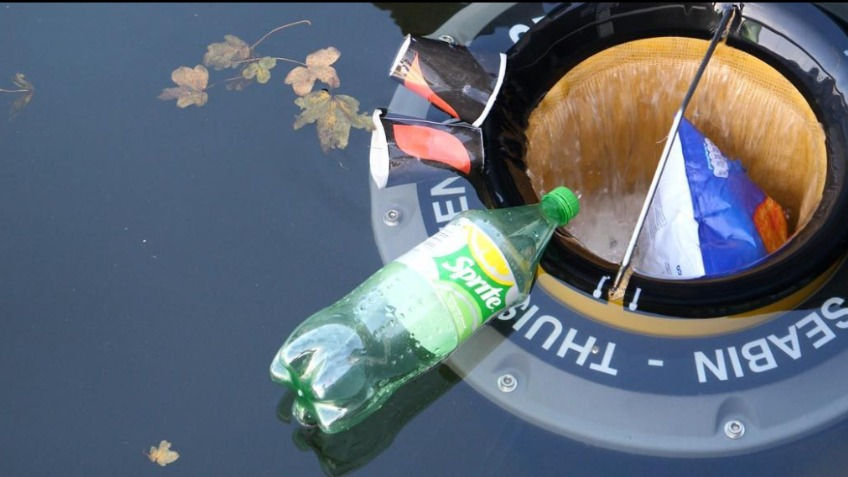The Ocean Cleanup = High Hopes
- Nicole Abigail

- Dec 10, 2018
- 3 min read
Plastic and the Public
The amount of plastic in our oceans is somewhat a topic that has become desensitised to the general public. It is human nature for individuals and small businesses to lose interest in 'saving the oceans' if results aren't immediate, actions are too expensive, or they feel as if these issues are not directly affecting them. In march of this year, The Independent released an article questioning the impact of plastic in the oceans on marine life, and the severity of it's consequences. This reflects the speculation surrounding environmental issues, as well as the mixed messages society receives on a regular basis.
Back in June, The guardian told the public that "since the 1950s, some 8.3bn tons of plastic have been produced worldwide, and to date, only 9% of that has been recycled." In summary, they stated that this is not something that can necessarily be fixed by just recycling more, because: "Our plastic pollution crisis is too big for recycling to fix".
A better solution would be eradicating plastic currently in the oceans, as well as reducing the amount of plastic entering them (e.g.: recycling).
Previous technology
There are many inventions that contribute to removing existing plastic in our oceans.
For example:
Sea bins are available to purchase online -making a difference on a smaller scale.

The SeaVax, described as the world's largest vacuum cleaner, works on a larger scale and also uses solar energy to function.

Alongside slightly older techniques, like using vessels and nets, which The Ocean Cleanup team describe as: "Costly, time-consuming, labor-intensive and [leads] to vast amounts of carbon emission and by-catch"
The Ocean Cleanup - Technology
The Ocean Cleanup project consists of the latest technology to exist regarding ocean plastics removal.
The Ocean Cleanup and their transparency
It has had extraordinary predictions even before the first deployment, such as having the ability to remove 50% of The Great Pacific Garbage Patch (the largest accumulation of ocean plastic in the world!) in just 5 years’ time. They also show regular updates and livestreams of their activity. Recently, the first results of System 001 showed many complications, but the team were able to come up with solutions to solve issues for next time round. Although there is little evidence of success for the OC, in terms of reaching such high expectations, the potential of this project is still unmatched.
Our responsibility
If The Ocean Cleanup succeeds, it may appear as a 'quick-fix' after decades of irresponsibility, however, this is far from the truth. If we don't start implementing steps to reduce plastic pollution then projects like this simply can't suffice.
Mini-interview with The Ocean Cleanup team:
Me: Is there still importance in individuals decreasing their plastic waste even if The Ocean Cleanup is 100% successful?
The OC team: Thanks for your question. The only way for The Ocean Cleanup to be 100% successful is if the plastic pollution problem is approached from multiple angles. It will require plastic to be stopped at the source and for the influx of plastic to become less. So, it is still important for others to take part even if our technology does work effectively.
Me: For the average person, what tips would you advise to prevent plastic pollution in our oceans?
The OC team: There are several steps you can take to prevent plastic pollution, but some depend on recycling facilities in your area. Here are a few tips:
• Organize beach, river bank or land cleanups (you might also be able to find Facebook groups for established initiatives in your area) • Reduce your use of disposable plastics (including microbeads in cosmetics) • Make sure you dispose of trash properly • Reuse and recycle whenever possible • Wash your synthetic clothing as little as possible and use microfiber absorbers when you do • Support us financially with a donation: https://www.theoceancleanup.com/fund/ • Apply to The Ocean Cleanup to help us develop our technology: https://www.theoceancleanup.com/careers/ • Lobby to your (local) government • Simply share The Ocean Cleanup social media posts with your network. "
If you enjoyed this blog post, share it with a friend!


Comments